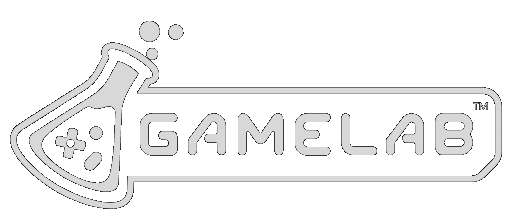
Gaming Drives Engagement on College Campuses
In the evolving landscape of higher education, universities are increasingly recognizing the value of innovative spaces that foster student engagement beyond traditional academic settings. Among these, dedicated gaming lounges are emerging as powerful hubs for community building, stress relief, and even academic integration. Auburn University's Melton Student Center Game Room, by GameLab, provides compelling evidence of how strategically implemented gaming spaces can transform campus life and student experiences.
The Auburn University Case Study
Auburn University's state-of-the-art gaming facility provides compelling evidence of how esports and social gaming environments can significantly impact student engagement on campus. Implemented by GameLab, an organization with over 15 years of industry experience and more than 1.5 million user hours across their facilities, the Auburn GameLab has produced remarkable engagement metrics during the Fall 2023 semester.
Academic Integration and Skill Development
While many universities initially view gaming spaces as purely recreational, the Auburn case study suggests these environments can complement academic objectives in meaningful ways.
Gaming facilities create opportunities for:
Practical application of STEM concepts through technical gaming setups
Development of teamwork and communication skills through multiplayer experiences
Building digital literacy essential for modern workplaces
Creating informal learning communities around shared interests
Providing spaces where faculty can integrate gaming-related assignments or activities
The substantial engagement metrics from Auburn—particularly the high freshman participation rate of 21%—indicate that gaming spaces can serve as important touchpoints for new students navigating the transition to university life.
Addressing Mental Health and Student Well-being
While the Auburn data doesn't explicitly measure mental health outcomes, the impressive usage statistics—over 34,000 total hours played with an average of 4.93 hours per monthly player—suggest these spaces fulfill an important role in students' lives beyond academics.
Gaming spaces provide structured recreational opportunities that offer:
A stress-relief outlet during high-pressure academic periods
Social connection opportunities that combat isolation
Accessible entertainment options within the campus environment
Alternative activities to higher-risk recreational behaviors
The exceptionally high satisfaction ratings across all evaluation categories (averaging 4.5/5) indicate that students find genuine value in these spaces, suggesting positive impacts on overall campus experience and well-being.
Considerations for Implementation
Universities considering similar initiatives can learn several key lessons from Auburn's successful implementation:
Quality matters: Auburn's exceptional ratings for cleanliness (4.59/5), game selection (4.48/5), and network speeds (4.51/5) indicate that investing in quality infrastructure pays dividends in student satisfaction
Game diversity is essential: While 40% of playtime came from the top five games, the remaining 60% was distributed across a broader selection, suggesting the importance of catering to diverse gaming interests
Platform variety: The popularity of games across both Xbox and PC platforms demonstrates the value of providing multiple gaming options
Data collection: Auburn's impressive 51% survey participation rate (18,000 surveys) highlights the importance of ongoing assessment to refine offerings
Specialized expertise: GameLab.io's 15 years of experience and 1.5 million user hours across facilities suggests partnering with experienced providers may yield better results than developing gaming spaces without specialized knowledge
The Future of Campus Gaming
As universities continue to evolve their approach to student engagement, the evidence from Auburn University makes a compelling case for social gaming lounges as strategic investments. With 21% of the freshman class and 12% of the entire student body participating, these spaces clearly resonate with today's student population.
The significant appeal to underrepresented groups (29% of users) and freshmen (42% of users) suggests gaming facilities may serve as important tools for universities focusing on diversity, inclusion, and first-year retention initiatives. The substantial usage metrics—34,000+ hours played in a single semester—indicate these are not peripheral amenities but central components of modern campus life.
For institutions looking to enhance student engagement and build vibrant campus communities, GameLab’s implementation at Auburn University provides a data-driven roadmap. The message from their Fall 2023 semester results is clear: strategic investment in gaming spaces delivers measurable engagement results that extend far beyond mere entertainment.
______
This article draws from primary data collected at Auburn University's GameLab facility during the Fall 2023 semester. GameLab.io has over 15 years of industry experience and more than 1.5 million user hours across their gaming facilities. For more information on implementing gaming initiatives at your institution, contact GameLab today!




